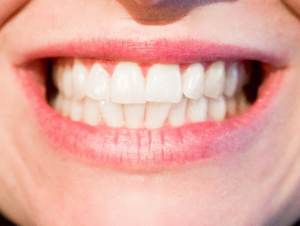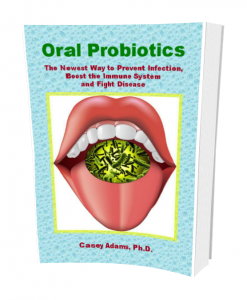Arthritis Proves to be Linked to Gingivitis Bacteria

Arthritis linked to gum disease.
A growing body of research is confirming that the bacteria that infect our gums may well be the cause of many cases of arthritis. Could your gingivitis be swelling up your joints?
In this article
Clinical research on arthritis sufferers
Dental researchers from Germany’s Martin-Luther University Halle-Wittenberg recently analyzed the synovial fluid of 42 patients – average age of 54 years old – with rheumatoid arthritis. They compared this information with 114 control subjects around the same age who had no arthritis and no other rheumatoid conditions.
The synovial fluid is the fluid within the joint capsule, which will typically contain inflammatory components relating to the arthritis. The researchers analyzed the synovial fluid for DNA that matched the genome of oral bacteria – specifically Porphyromonas gingivalis – the bacteria most known to be at the root of most gingivitis infections.
The researchers found that the rheumatoid arthritis patients were about four-and-a-half times more likely to harbor the DNA of the Porphyromonas gingivalis bacteria within their synovial fluid compared to the non-arthritic adults.
They also found that the arthritic patients were 12 times more likely to have Porphyromonas gingivalis infections and Porphyromonas gingivalis DNA in the joint fluid.
Furthermore, missing teeth correlated directly with cases of rheumatoid arthritis in this study. In other words, the more missing teeth, the more likely the patients had rheumatoid arthritis.
The researchers concluded: “DNA of periodontopathogens can be found in synovial fluid and oral bacteria may play a role in the pathogenesis of arthritis.”
Similar findings in other studies.
Last year researchers from New York University Hospital for Joint Diseases analyzed newly diagnosed and new onset rheumatoid arthritis patients for links between gingivitis and their arthritis.
The researchers utilized pyrosequencing to analyze the joints along with their oral cavities. They also compared these findings with healthy control patients and with existing chronic rheumatoid arthritis patients. The researchers also utilized analysis of the anti-porphyromonas gingivalis antibody to determine previous exposure to P. gingivalis.
The researchers found that the patients with arthritis had an increased amount of gingivitis bacteria exposure, notably of P. gingivalis. They also found that the worse the gingivitis infection and periodontal disease, the more severe the rheumatoid arthritis.
The newly onset RA patients had a 78% similar match with the P. gingivalis in their oral cavity.
In their conclusion, the researchers stated:
“Patients with new-onset rheumatoid arthritis exhibited a high prevalence of periodontal disease at disease onset, despite their young age and paucity of smoking history.”
Research from Case Western Reserve University reviewed multiple studies and reports of arthritis and other infections linked to oral bacteria or the DNA of oral bacteria. The researchers found that oral bacteria including Fusobacterium nucleatum, Porphyromonas gingivalis, Streptococcus mutans, and Campylobacter rectus are implicated in what the scientists referred to as “extra-oral translocation.”
What is bacteria translocation?
Quite simply “extra-oral translocation” means the bacteria are moving – translocating – from the oral cavity to other parts of the body.
Researchers from the European University of Brittany and the University of Rennes have determined that another oral bacteria – Capnocytophaga spp. – which will infect both human gums and animal gums – have been found infecting joints of immune-suppressed people and causing arthritis as well as bone implant infections.
Researchers from Japan’s Niigata University Graduate School of Medical and Dental Sciences studied 54 patients with both rheumatoid arthritis and chronic periodontitis (also considered gingivitis). The researchers found that the inflammatory agents found among the oral cavities – especially evident during probing – correlated with the inflammatory responses found that related to their arthritis. This is specific to changes in a bone inflammation agent called matrix metalloproteinase-3 (MMP-3), relating to interleukin-6 (IL-6).
Researchers from New Zealand’s Dunedin School of Medicine have also found the correlation. Their findings stated that: “The oral cavity has its own characteristic microbiota, which concentrates in periodontal tissues and is in close association with a permeable epithelium.”
They went on to state: “Evidence is presented to support the theory that an altered microbiota is a factor in the initiation and perpetuation of inflammatory diseases, including rheumatoid arthritis, spondyloarthritis….” and
“Mechanisms through which the microbiota may be involved in the pathogenesis of these diseases include altered epithelial and mucosal permeability, loss of immune tolerance to components of the indigenous microbiota, and trafficking of both activated immune cells and antigenic material to the joints.”
Belgium doctors have described two cases where Streptococcus gordonii has been implicated in arthritis. The doctors found the same bacteria in the oral cavity and in the joint.
In a surprise study, microbiology researchers from India’s Barkatullah University found that the probiotics Lactobacillus casei and Lactobacillus acidophilus slowed down the inflammatory response related to arthritis in rats. The rats given Lactobacillus casei and Lactobacillus acidophilus orally had significant improvement in their arthritic condition when compared to controls. Apparently the means of this improvement was through the immune system’s cytokines.
After measuring levels of Interleukin (IL)-6, tumor necrosis factor (TNF)-α and other cytokines, they found that the rats fed the probiotics had inflammation down-regulating cytokine levels – associated with reductions in inflammation and faster healing times.
REFERENCES:
Piau C, Arvieux C, Bonnaure-Mallet M, Jolivet-Gougeon A. Capnocytophaga spp. involvement in bone infections: a review. Int J Antimicrob Agents. 2013 Jun;41(6):509-15.
Scher JU, Ubeda C, Equinda M, Khanin R, Buischi Y, Viale A, Lipuma L, Attur M, Pillinger MH, Weissmann G, Littman DR, Pamer EG, Bretz WA, Abramson SB. Periodontal disease in new-onset rheumatoid arthritis. Arthritis Rheum. 2012 Oct;64(10):3083-94.
Han YW, Wang X. Mobile Microbiome: Oral Bacteria in Extra-oral Infections and Inflammation. J Dent Res. 2013 Jun;92(6):485-91.
Reichert S, Haffner M, Keyßer G, Schäfer C, Stein JM, Schaller HG, Wienke A, Strauss H, Heide S, Schulz S. Detection of oral bacterial DNA in synovial fluid. J Clin Periodontol. 2013 Jun;40(6):591-8.
Kobayashi T, Okada M, Ito S, Kobayashi D, Ishida K, Kojima A, Narita I, Murasawa A, Yoshie H. Assessment of Interleukin-6 Receptor Inhibition Therapy on Periodontal Condition in Patients With Rheumatoid Arthritis and Chronic Periodontitis. J Periodontol. 2013 Mar 14.
Pääkkönen M, Peltola H. Bone and joint infections. Pediatr Clin North Am. 2013 Apr;60(2):425-36.
Yeoh N, Burton JP, Suppiah P, Reid G, Stebbings S. The role of the microbiome in rheumatic diseases. Curr Rheumatol Rep. 2013 Mar;15(3):314.
Yombi Jc, Belkhir L, Jonckheere S, Wilmes D, Cornu O, Vandercam B, Rodriguez-Villalobos H. Streptococcus gordonii septic arthritis: two cases and review of literature. BMC Infect Dis. 2012 Sep 13;12:215.
Amdekar S, Singh V, Kumar A, Sharma P, Singh R. Lactobacillus casei and Lactobacillus acidophilus regulate inflammatory pathway and improve antioxidant status in collagen-induced arthritic rats. J Interferon Cytokine Res. 2013 Jan;33(1):1-8.
















